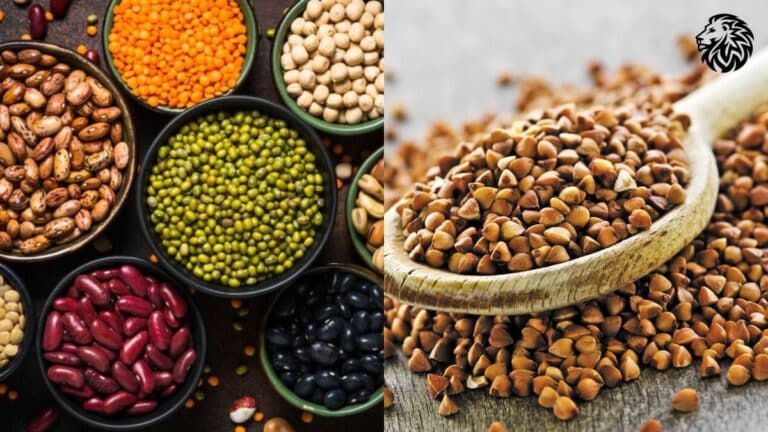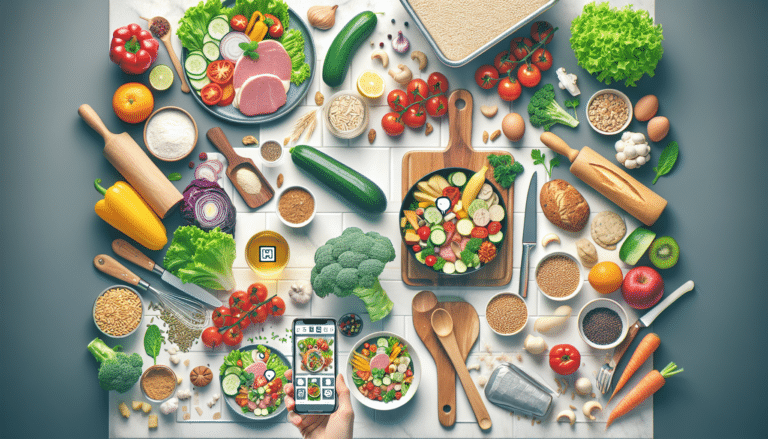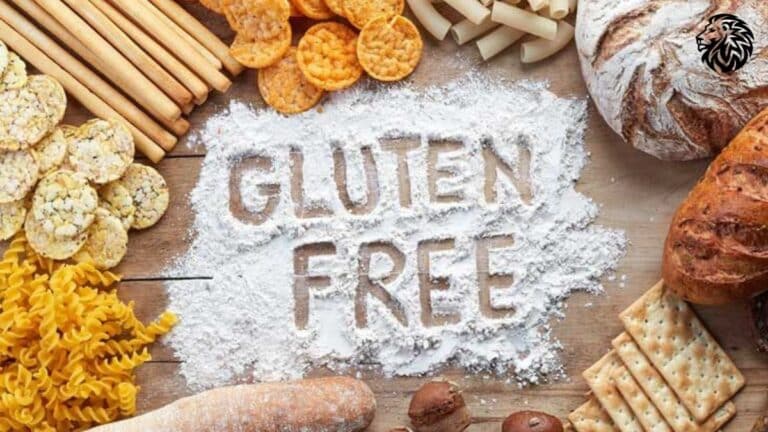In recent years, the gluten-free diet has surged in popularity, evolving from a niche dietary need to a mainstream lifestyle choice. Initially developed as a medical necessity for individuals with celiac disease or gluten sensitivity, this diet excludes all forms of gluten, a protein found in wheat, barley, and rye. Its growing adoption is partly influenced by a broader understanding of gluten-related health issues and an increasing number of people identifying gluten as a dietary irritant.
However, the transition to a gluten-free lifestyle is not without its challenges. Many individuals, eager to embrace this new way of eating, often stumble into pitfalls that can inadvertently affect their overall health and wellness. Common mistakes range from misunderstanding what gluten actually is, to relying heavily on processed gluten-free products, each carrying its own set of nutritional and health implications.
Recognizing and avoiding these mistakes is crucial for anyone embarking on or already following a gluten-free diet. This article aims to shed light on the five worst mistakes commonly made on a gluten-free diet. Our information is meticulously researched and backed by experts in nutrition and dietary health, ensuring that our readers receive reliable, actionable, and in-depth guidance. Whether you are navigating this diet for health reasons or personal preference, understanding these pitfalls is essential for maintaining a balanced and healthy lifestyle.
5 Worst Gluten-Free Diet Mistakes
Mistake 1: Not Understanding What Gluten Really Is

Explanation of Gluten and Its Sources
Gluten is a family of proteins primarily found in wheat, barley, and rye. It acts as a binding agent, giving bread its fluffy and elastic texture. While these are the most common sources, gluten can also be hidden in less obvious foods and products, such as sauces, soups, and even some cosmetics. Understanding its pervasive presence is crucial for those needing or choosing to avoid it.
Common Misconceptions About Gluten
There are several misconceptions surrounding gluten that can lead to unnecessary dietary restrictions or inadvertent consumption:
- All Grains Contain Gluten: Many believe that all grains contain gluten, leading to the unnecessary exclusion of gluten-free grains like quinoa, rice, and corn.
- Gluten-Free Equals Healthy: There’s a common notion that gluten-free products are inherently healthier, which is not always the case. Many gluten-free alternatives are heavily processed and can be high in sugar and fat.
- Oats Are Always Gluten-Free: While oats are naturally gluten-free, they are often processed in facilities that handle wheat, leading to cross-contamination.
Impact of Misunderstanding Gluten on Diet Choices
Misconceptions about gluten can significantly impact dietary choices:
- Nutritional Deficiencies: Avoiding all grains out of a misunderstanding can lead to a lack of essential nutrients.
- Unbalanced Diet: Assuming all gluten-free products are healthy can result in an unbalanced diet high in processed foods.
- Inadvertent Gluten Intake: Not being aware of hidden gluten sources can lead to unintentional consumption, which is particularly problematic for those with celiac disease or gluten sensitivity.
The key to a successful gluten-free diet is not just about cutting out gluten. It’s about understanding what gluten is, where it can be found, and how to replace it with nutritious alternatives. This knowledge enables informed decisions, ensuring a nutritionally balanced diet while effectively avoiding gluten.
Mistake 2: Over-Reliance on Processed Gluten-Free Products
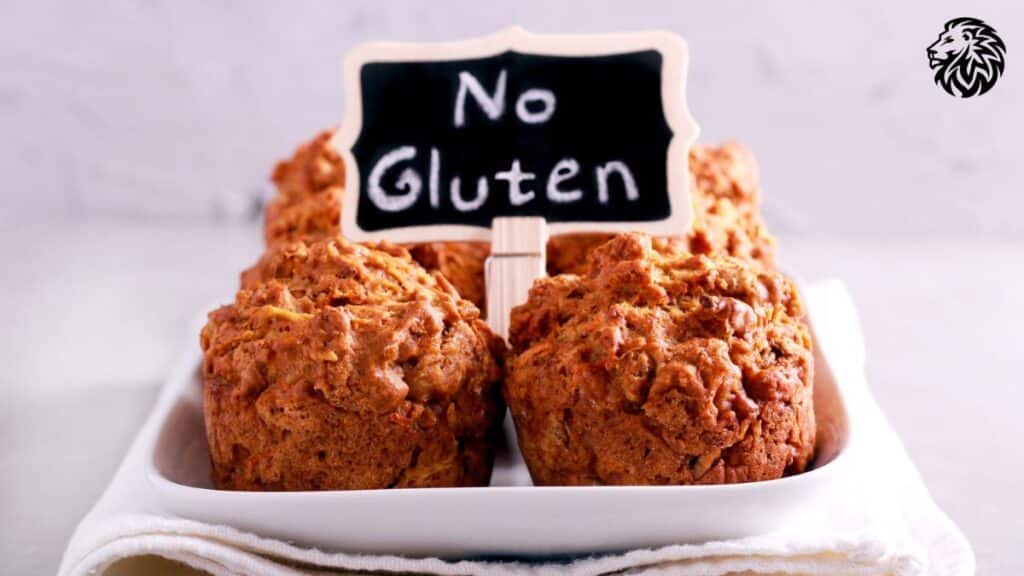
Proliferation of Processed Gluten-Free Foods
With the rising demand for gluten-free options, the market has seen an influx of processed gluten-free products. These range from breads and pastas to snacks and desserts. While these products offer convenience and variety for those on a gluten-free diet, they are not always the healthiest choices. Often, to compensate for the lack of gluten, manufacturers add extra sugar, fat, and artificial additives to improve taste and texture. This surge in availability has made it easier than ever to rely heavily on these processed items, potentially leading to an unbalanced diet.
Health Implications of Consuming High-Calorie, Low-Nutrient Gluten-Free Products
The overconsumption of processed gluten-free products can have several negative health implications:
- Weight Gain: Many gluten-free processed foods are higher in calories and lower in fiber compared to their gluten-containing counterparts, which can contribute to weight gain.
- Nutritional Deficiencies: These products often lack essential nutrients like fiber, iron, and B vitamins, leading to potential nutritional gaps.
- Increased Risk of Chronic Diseases: Regular intake of high-sugar, high-fat, and low-nutrient foods is associated with an increased risk of chronic diseases such as heart disease and diabetes.
Tips for a Balanced Diet with a Focus on Natural, Gluten-Free Foods
To maintain a healthy and balanced gluten-free diet, consider the following tips:
- Prioritize Whole Foods: Focus on naturally gluten-free whole foods like fruits, vegetables, lean proteins, and gluten-free grains such as quinoa, rice, and millet.
- Read Labels Carefully: Always check the labels on packaged foods for hidden gluten and high levels of sugar, fat, and artificial additives.
- Prepare Homemade Meals: Cooking meals at home allows for better control over ingredients and can help avoid the unnecessary additives found in many processed foods.
- Seek Nutrient-Dense Alternatives: Opt for gluten-free products that are fortified with essential nutrients or made with nutrient-dense ingredients like nuts, seeds, and whole grains.
- Balance is Key: It’s okay to enjoy processed gluten-free products occasionally, but they shouldn’t be the cornerstone of your diet.
Embracing a gluten-free lifestyle doesn’t mean you have to sacrifice nutrition or flavor. By being mindful of the quality and nutritional content of gluten-free products and focusing on natural, whole foods, you can enjoy a diverse, satisfying, and healthy diet.
Mistake 3: Neglecting Nutritional Deficiencies

Importance of Essential Nutrients Often Missed in a Gluten-Free Diet
Adopting a gluten-free diet often leads to the exclusion of certain grains that are key sources of essential nutrients. This can result in deficiencies in fiber, iron, B vitamins, and other micronutrients, which are crucial for overall health. Whole grains, which are commonly eliminated in a gluten-free diet, are a major source of these nutrients. Their absence can impact digestive health, energy levels, and immune function.
Ensuring Adequate Intake of Fiber, Iron, and B Vitamins
- Fiber: Often lacking in gluten-free diets, fiber is essential for digestive health. To ensure adequate fiber intake, incorporate gluten-free whole grains like brown rice, quinoa, and buckwheat. Additionally, fruits, vegetables, nuts, and seeds are excellent sources of fiber.
- Iron: Iron deficiency is a concern for those on gluten-free diets, particularly for women and vegetarians. Lean meats are a good source of iron for non-vegetarians. For vegetarians, or those looking for plant-based options, lentils, beans, spinach, and fortified gluten-free cereals can be good alternatives.
- B Vitamins: Gluten-containing grains are a primary source of B vitamins. To compensate for their absence, include gluten-free whole grains, such as brown rice and quinoa, which naturally contain B vitamins. Additionally, dairy products, eggs, and meat are good sources. For vegetarians or those with dairy restrictions, exploring fortified foods or supplements might be necessary.
Expert Opinions and Research on Managing a Nutritionally Complete Gluten-Free Diet
Nutrition experts and research studies emphasize the importance of a well-rounded gluten-free diet. They suggest:
- Diversifying Food Choices: Include a wide range of gluten-free foods to cover the spectrum of needed nutrients.
- Consulting a Dietitian: Working with a dietitian can help tailor a gluten-free diet to individual nutritional needs, ensuring that all essential nutrients are adequately provided.
- Regular Health Check-ups: Periodic blood tests can help monitor nutrient levels and address any deficiencies early on.
- Educating Oneself: Staying informed about gluten-free nutrition can empower individuals to make healthier food choices.
In conclusion, while a gluten-free diet can be healthy and nutritionally adequate, it requires careful planning to avoid nutritional deficiencies. By incorporating a variety of nutrient-rich foods and seeking guidance from healthcare professionals, individuals can ensure their gluten-free diet supports their overall health and well-being.
Mistake 4: Cross-Contamination Issues
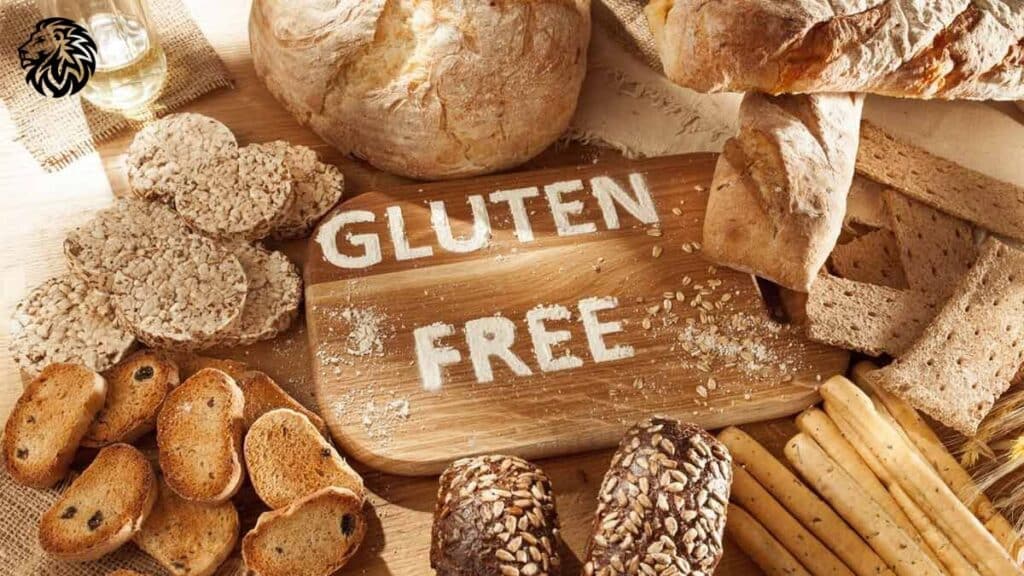
Explanation of Cross-Contamination and Its Risks
Cross-contamination occurs when gluten-free foods come into contact with gluten-containing foods or surfaces. This can happen during the manufacturing process, in the kitchen, or even through shared utensils and appliances. For individuals with celiac disease or gluten sensitivity, even trace amounts of gluten can trigger serious health reactions. Symptoms can range from gastrointestinal distress to more severe reactions like damage to the small intestine in the case of celiac disease.
Practical Advice for Avoiding Cross-Contamination at Home
- Separate Kitchen Tools and Appliances: Use separate cutting boards, toasters, and other kitchen tools for gluten-free foods.
- Storage Solutions: Store gluten-free products in separate, clearly labeled containers or shelves.
- Thorough Cleaning: Regularly clean surfaces and kitchen utensils to eliminate gluten residues.
- Education of Household Members: Educate everyone in the household about the importance of preventing cross-contamination to ensure a safe environment for those with gluten sensitivities.
Avoiding Cross-Contamination in Restaurants
- Communicate Dietary Needs: Clearly communicate your gluten-free needs to the staff. Don’t hesitate to ask about their kitchen practices regarding gluten.
- Choose Gluten-Free Friendly Establishments: Opt for restaurants that are known for catering to gluten-free diets or have a dedicated gluten-free menu.
- Verify Ingredients and Preparation: Inquire about ingredients and their preparation methods to ensure dishes are truly gluten-free.
- Avoid Buffets: Buffets often have higher risks of cross-contamination due to shared serving utensils and close proximity of different foods.
Perspectives from Individuals Managing Gluten Sensitivities or Celiac Disease
- Living with Vigilance: Individuals with gluten sensitivities often emphasize the constant vigilance required to manage their diet, especially in social settings or when eating out.
- Education and Advocacy: Many find that educating themselves and advocating for their health needs becomes an integral part of their lifestyle.
- Support Systems: Finding support through online communities, local support groups, or friends and family can be invaluable in managing the challenges of a strict gluten-free diet.
In summary, understanding and mitigating the risk of cross-contamination is crucial for individuals with celiac disease or gluten sensitivity. By taking proactive steps at home and in public eating settings, and by building a supportive and informed network, those on a gluten-free diet can significantly reduce the risk of accidental gluten exposure.
Mistake 5: Treating Gluten-Free as a Weight-Loss Diet

Debunking the Myth of Gluten-Free as an Automatic Weight-Loss Solution
The misconception that a gluten-free diet is a surefire way to lose weight has gained traction in recent years. This belief largely stems from the association of gluten-free living with healthier eating habits and the elimination of high-calorie, processed foods. However, the reality is more nuanced. Simply removing gluten from the diet does not automatically lead to weight loss. In fact, it can have the opposite effect if not managed correctly.
Analysis of How a Gluten-Free Diet Can Impact Weight
- Caloric Content: Many gluten-free products compensate for texture and flavor loss by adding extra sugar and fat, which can lead to higher caloric content compared to their gluten-containing counterparts.
- Nutritional Density: Gluten-free diets might lead to choosing less nutrient-dense foods, influencing hunger and satiety levels, and potentially leading to overeating.
- Psychological Aspect: There’s a tendency to perceive gluten-free products as inherently healthier, which can lead to consuming larger portions without considering their actual nutritional value.
Recommendations for Healthy Weight Management on a Gluten-Free Diet
- Focus on Whole Foods: Emphasize naturally gluten-free whole foods like fruits, vegetables, lean proteins, and whole grains (e.g., quinoa, rice, buckwheat) that are nutrient-dense and lower in calories.
- Mindful Eating: Pay attention to portion sizes, even with gluten-free products. Being mindful of one’s hunger and fullness cues can prevent overeating.
- Balanced Meals: Ensure meals are balanced with a good mix of carbohydrates, proteins, and healthy fats to maintain satiety and provide necessary nutrients.
- Regular Physical Activity: Incorporate regular exercise into your routine, as it plays a crucial role in maintaining a healthy weight.
- Professional Guidance: Consider consulting a dietitian who can provide personalized advice and meal planning tailored to weight management goals on a gluten-free diet.
While a gluten-free diet is essential for some due to health reasons, it is not inherently a weight-loss diet. Understanding the nutritional aspects of gluten-free foods and making informed, balanced dietary choices are key to managing weight effectively on this diet.
Conclusion
Adopting a gluten-free diet, whether due to medical necessity or personal choice, requires a nuanced understanding of nutrition and mindful eating habits. Throughout this article, we’ve explored five critical mistakes commonly made on such a diet: misinterpreting what gluten is, over-relying on processed gluten-free products, neglecting nutritional deficiencies, overlooking cross-contamination risks, and misconceiving the diet as a guaranteed path to weight loss. Each of these mistakes carries the potential to undermine the health benefits of a gluten-free lifestyle.
It’s important to remember that a gluten-free diet isn’t inherently healthier unless it’s well-planned and balanced. This involves choosing whole, naturally gluten-free foods, understanding nutritional content, being aware of potential cross-contamination, and not falling prey to the myth that gluten-free automatically means healthier or conducive to weight loss.
For those navigating this dietary change, professional guidance can be immensely beneficial. A registered dietitian or nutritionist, particularly one with experience in gluten-free diets, can provide personalized advice, helping to ensure that your diet is nutritionally complete and tailored to your individual health needs.
In conclusion, informed dietary choices are the cornerstone of a successful and healthy gluten-free lifestyle. By avoiding these common mistakes and seeking expert advice when needed, individuals can enjoy the full health benefits of their dietary choices, supporting their long-term well-being and quality of life. Whether you are managing celiac disease, gluten sensitivity, or simply pursuing a gluten-free lifestyle, the journey towards better health starts with knowledge, awareness, and a commitment to mindful eating.

